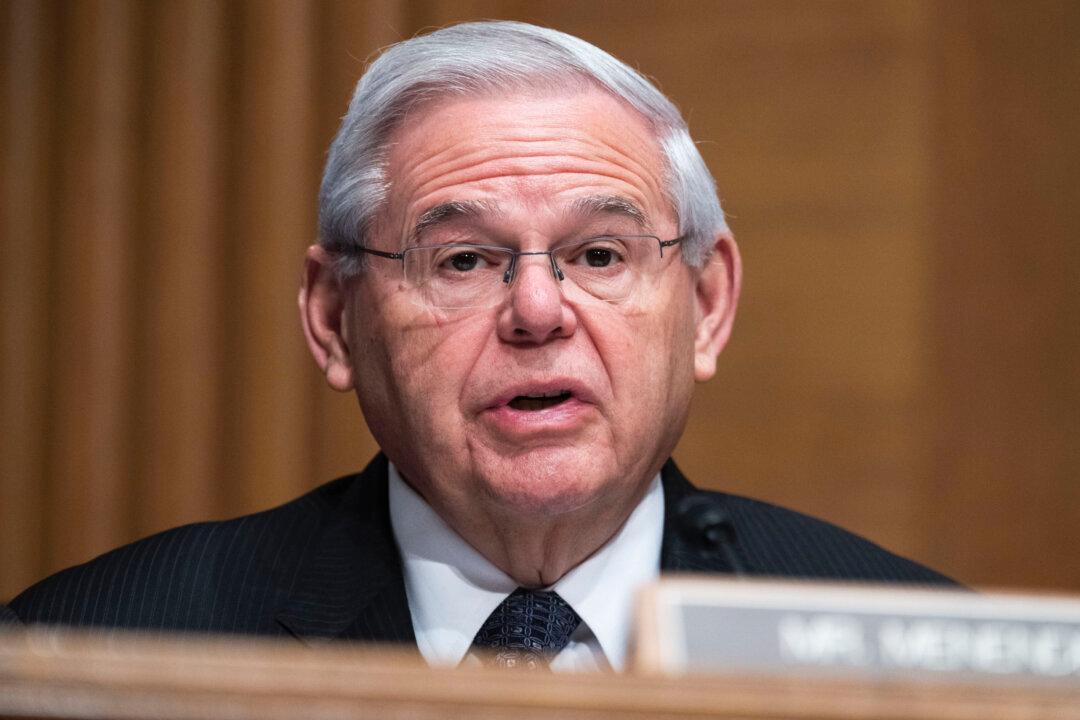Sen. Bob Menendez (D-N.J.) assured the public on March 15 that repealing the Authorizations for the Use of Military Force (AUMFs) against Iraq would have no impact on the United States’ confronting the Iranian threat.
“Some will ask whether repeal of the authorization impacts our ability to protect the nation against Iran. Take it from me, as someone who has worked for a couple of decades to confront the challenge of Iran: This will have no impact on defending against any Iranian threat,” Menendez said during a press conference following the Senate Democrats’ weekly policy luncheon.





